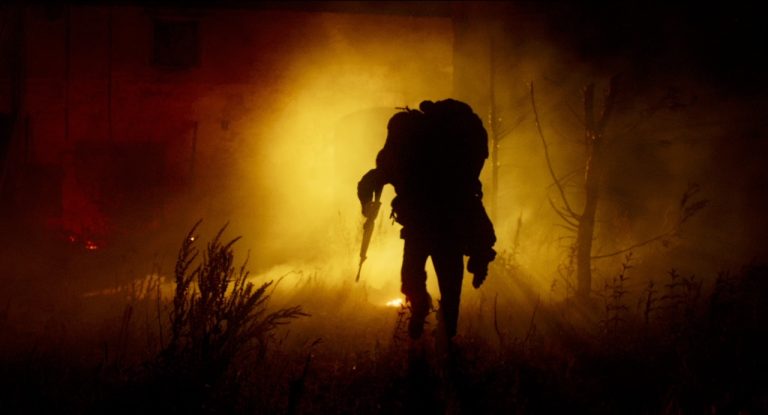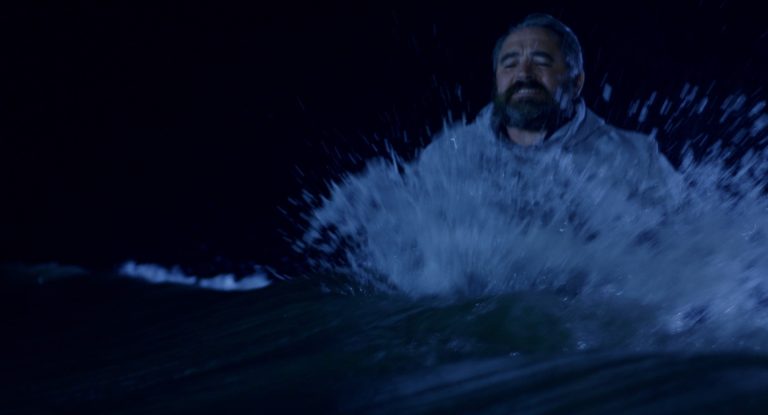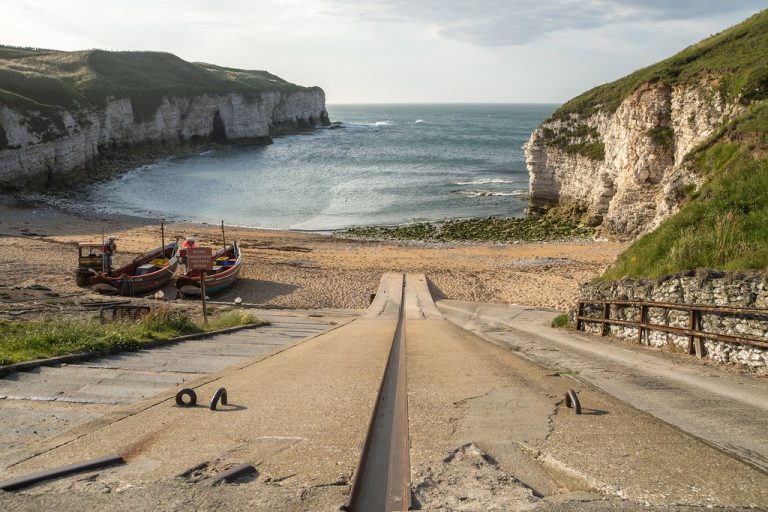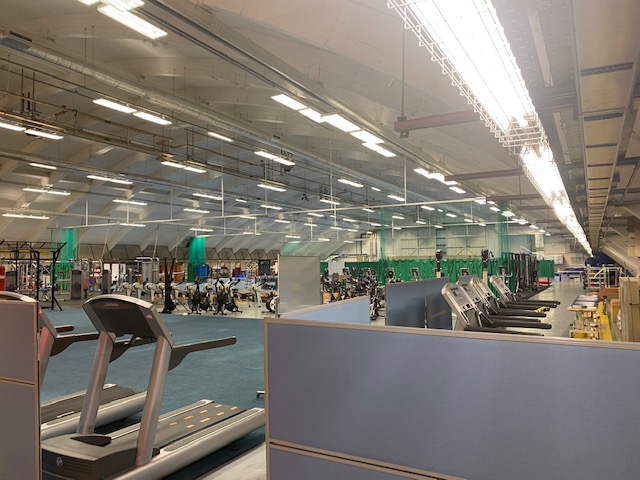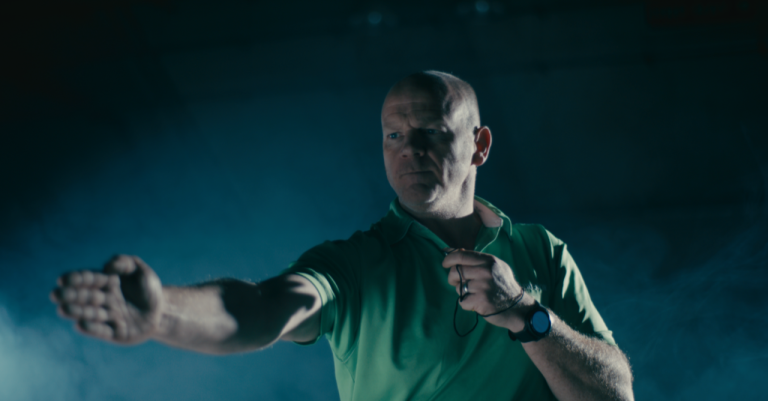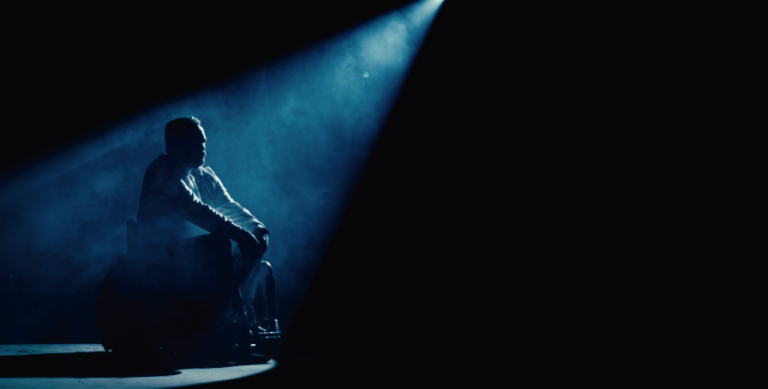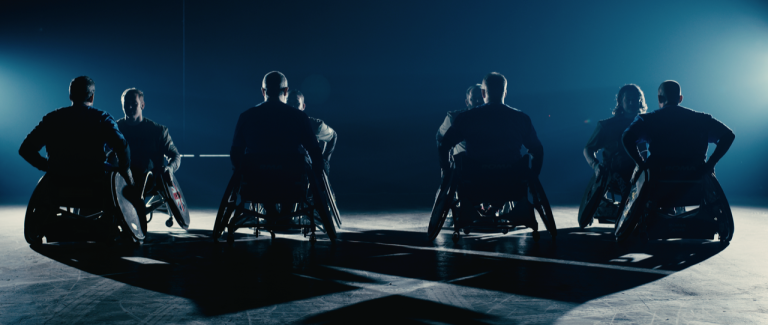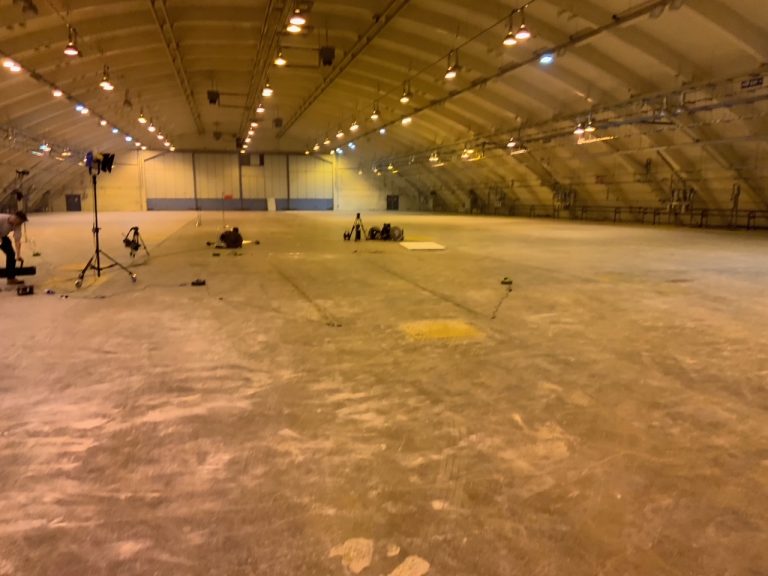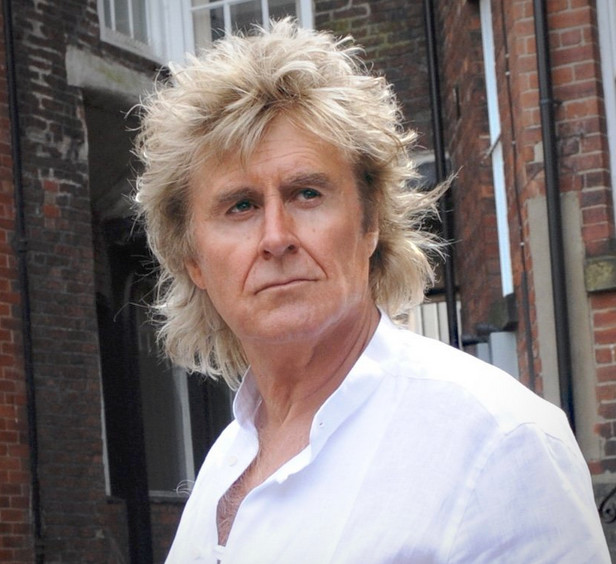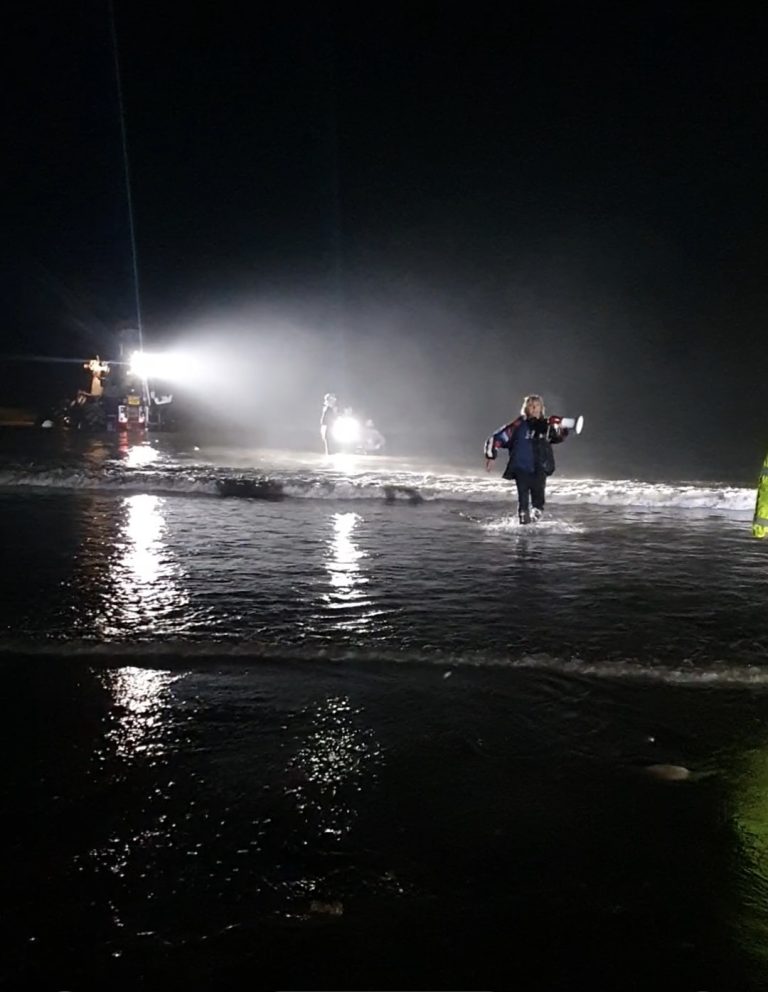john parr
Director of
Unconquered
A complete interview with John
We would like to express our sincere gratitude to famous singer and director John Parr for taking the time to answer our questions.
Whole team of Liverpool Indie Awards is wishing you the very best in all your future projects. We hope to see more of your exceptional work in the years to come. Thank you once again!
“A memoir of triumph over adversity and wounds no sword can make”
Unconquered tells the true story of two elite soldiers, severely injured, both mentally and physically, in the line of duty. It charts their inspiring journey from the depths of despair to break the chains of life changing injuries to rise again.
Unconquered is a twenty eight minute drama documentary that tells the true story of Corporal Mark “Dot” Perkins and Sergeant Dave “Dogs” Dewar. It begins from the moment of their tragic accidents and follows their personal battle to defeat their demons and overcome life changing injuries to find a way back.
A human story of triumph over adversity, filled with heart, humor and the unbreakable bond of brotherhood.
I saw the film in my head, the sounds, the music. It had to be a movie, the look and feel should be pictorially beautiful – set against the dirt and grit of this initially bitter tale but then the rise as the human spirit finally triumphs. There were so many metaphors that I wrestled with, some that few will grasp unless they really engage. I knew I had to coax the audience in and make them care and for brief moments make them a little confused to challenge them. The sound had to be strong, scary at times, that would overwhelm and drag the audience into the parachute failure, the truck wreck and the rugby game.
Entertainment was second only to the truth, without it I could not drive the message home and make the film live in the memory long after the final frame.
Not by choice I was on my own – producer, writer, director, the whole shooting match. It was tough and as I have said, the film was already locked in my head, it was just the endless sleepless night figuring out how to capture it all. My small crew had years of experience doing corporate videos but I had a Hollywood movie in my head and somehow needed an allie who could help me achieve this.
The saving grace in all of this was Luke Wade. I had seen a short promo he had made for another friend Steve Steinman. Clearly it was a one man band effort but I immediately saw Luke’s potential. He had a great eye and an individual style with blocking and angles. He was initially a little daunted being around some of the experienced members of the crew and wasn’t even expecting to be manning a camera, just assisting. Within a day he was main camera, a day later DOP and eventually became my wing man in post as editor, colourist and general sounding board.
It was a very lonely and isolated path. I had originally decided to just be the Writer/Director and hire a production company to make the film. This was pre-Covid and my friend, retired Sgt Neil Bladen introduced me to Dot & Dave down at the barracks.
Covid came and went, along with the production company, and the promise of any help from investors . So I was on my own but I was on my honour, I had promised to I tell Dot and Dave’s story, so I bit the bullet and bought all the film equipment and pulled a few favours from some old pals who knew their way around a shoot and we began our nine and a half day journey to heaven and hell.
Telling the truth of Dot & Dave’s story haunted me. These were battle hardened soldiers, part of a brotherhood that few may enter. They honoured me with their stories and from then on I had to weave a concise memoir that would capture the whole 360 in just 24 minutes.
Even as shooting began I felt I was not getting to the heart of their story. It was early days but I was still an outsider walking on eggshells. As the shoot progressed they began to trust me, at least a little… It was the second day, we were sharing a soup in the freezing hanger and I went for it . . . “How deep can I go?” Dot and Dave were puzzled. “How much of the dark stuff can I tell?” They just gave we the thousand yard stare and said . . .”Go for it”.
The shoot took nine and a half days. We began in St Athan in Wales in a huge military aircraft hanger. It was dusty and without power most of the time. The office outside is where Dave actually works.
The central piece of the Unconquered was very challenging. The Battlefield and the Dave’s suicide in the north sea scenes intercut with the physical and emotional breakdown of Dot when he rages against the heavy punch bag and finally falls to the ground spent of all will and emotion. Again I saw it all in my head and getting that across to Dot and Dave and the crew was very tough. It was all so abstract to them.
It is impossible to wheel a wheelchair on a beach let alone into an angry sea at 3am in the morning in March. I was out in the deep water with Dave Thorpe on main camera on the huge life boat tractor 60 feet from the beach and though it stood over ten feet high the waves were crashing over the top of us and took out the lights – so whole scene was shot in natural light . . .moonlight.
Luke was up to his shoulders in the waves with a plastic Sainsbury’s carrier protecting the camera I and just kept rolling despite the swell.
I had a minder Alex Young trying to stop Dave from drowning. Dave was swept out of his chair and washed up on the beach half a dozen times. He must have been in great pain, but his humour and tenacity carried the crew onward as we all persevered, shivering in the freezing sea and raging wind.
In truth I loved every Minute of it. No matter how much I planned, it was sometimes the happy accidents that made the scene. I would have liked a few more drone shots, particularly in the rugby game. I wanted it to be reminiscent of the James Caan movie “Rollerball” and put the audience right in the action… in those armoured wheelchairs as they careered into each other and the players were sent sprawling across the cold unforgiving concrete. A few in chair camera shots and really close drone angles would have helped heightened the drama and chaos of it all.
It would have to be “St Elmo’s Fire (Man in Motion)’. It was written by David Foster and myself as an anthem for wheelchair athlete Rick Hansen. Rick had recently been disabled and during his recovery dreamed of wheeling his chair around the globe to raise funds and awareness for spinal research.
His incredible journey began in May 1985, wheeling 50 miles a day for two years two months and two days… 25,000 miles circumnavigating the globe.
Well… the rest is history… Rick’s dream finally became a reality and his epic journey had raised $360,000,000 for spinal research and built Icord, the world’s leading spinal research facility, where a few people with the same injuries suffered by Rick were able to walk again.
In 1985 there was little internet and no social media or Facebook, so Rick had very little publicity. At the outset of his journey, three men and a dog waved him off from a rainy shopping mall car park in Vancouver… On his return, a million people lined the streets, brass bands playing his song and everyone singing “Gonna be a man in motion” as he wheeled by.
During that journey Rick crossed, desert and mountain ranges, even The Great Wall of China… where a million Chinese lined his route clapping and singing his song. I truly believe Unconquered has the same power to make change and inspire.
Hey, I’m a fledgling director but I am a time served entertainer, writer and producer of my own music and rock promo’s… So here goes…
Aim high, go for it, follow your gut, canvass the opinion of others but don’t make decisions by committee, if it feels wrong it generally is. It has to be your vision, your baby… so love it like a real one.
There were no actors in Unconquered. The two soldiers played themselves, which as you can imagine was challenging for them and indeed for myself and the crew, who incidentally, all bar two, have a disability.
To ask Dot and Dave to relive the most harrowing moments of their lives on camera was a tough ask. It was the honour of my life that these incredible men put their trust in me and allowed me into their darkest places. In truth from an acting perspective I was looking for a more traditional performance but I soon realised what I was getting a truth I never envisaged.
The music was the toughest part. I have written the main title themes for a lot of movies. “The Running Man” “Three men And A Baby” “Near dark” “Quicksilver” “Spiderman” fifteen in all – but only occasionally have I written the cues. I had my writer/director’s hat on for so long on Unconquered that the enormity of composing the score hit me hard and very late in post.
I was funding everything and apart from a little help from my pal Neil Bladen, I had already really hurt myself financially, so to think of delivering a huge orchestral score, when the coffers were plundered, became as daunting as the writing.
I was blessed in that the main theme came to me fairly quickly and from then on it was just building the house whilst always trying to create a memorable melody even in the shortest of cues. My friend of thirty odd years Richard Cottle orchestrated it for me and sprinkled his gifted magic over my ponderings.
The soundscape was just me in the main but my cinematographer, Luke Wade, added some stunning sound effects for the Rugby Game and key whooshes and thuds- but foley was virgin territory for me and it really was a “Heath Robinson” Job. I could hear the sounds in my head so it was just figuring out what I could kick, hit or bang that sounded right. Most of the shoot had been done without any sound or sync, so it was like working on a silent movie. It drove me nuts!
Oh boy don’t get me started! As I mentioned earlier, I had the whole thing mapped out. I saw and heard it long before the cameras rolled. I wrote every scene in the tiniest detail, the colour the sound and mood, but it was still impossible for my crew to really get inside what I envisioned. It was just blind trust. A few examples…
In the suicide scene, the cameraman wanted to see the pain and anguish in Dave’s face as he drove through the waves but I knew he just had the thousand yard stare and was emotionless as he wheeled towards his inevitable fate.
In post Luke Wade and a couple of my fellow conspirators felt we had everything in the can. I knew we had to dig deeper into the story and wanted to ambush the audience and give Dot and Dave a final barrier to overcome, and so we shot the extra scene where Dave’s place in the team is declined. This allowed us to hammer home the beats made in the middle of the movie, revisiting the battlefield, the suicide, and the training scenes. No one agreed but I just went with my gut and fortunately it paid off.
Audience reaction has been remarkable. Festival rules negate any public premier or open online showing but I was allowed to show it at a charity benefit concert a couple of weeks ago to a crowd of one hundred and seventy people.watching the movie was like church, no sound and at the end they all stood as one and applauded. I was blown away.
I received a letter from a a man who had lost his wife and was now suffering from brain cancer. He wrote that the film had changed the way he viewed his wife’s death and the way he would now see his own illness. There were other moving testimonies that night that reinforced my faith in what myself and the team had created.
Over the years I have heard similar stories of how “St Elmo’s Fire (Man in Motion) had helped people get through some of life’s challenges and to me this touches me deeply and is entirely why I make music and now film.
Film festivals are a very different beast… I love film, I have done all my life. I want to be transported… lost in a new world and emotionally filled and drained by the beauty of the story, the acting and the craft. I believe without entertainment a film is only half loaded and is sometimes celebrated on technique and artistic metaphors that would be lost on the general public… To me, without the entertainment element, a film doesn’t engage, it is hollow and would be lost an your average Jane or Joe who buys a ticket. Without them cinema will die and indeed is doing so.
Winning accolades is wonderful and indeed an honour but throughout my life, amongst the great positive words, I always remember my bad notices. They are like scars. I have given my life to trying to make a difference. As a musician and now writer/director I have burned every braincell. Film festivals are a great experience and a must do for any film maker, but for me the pain of sometimes not being even selected can be death by a thousand cuts.

